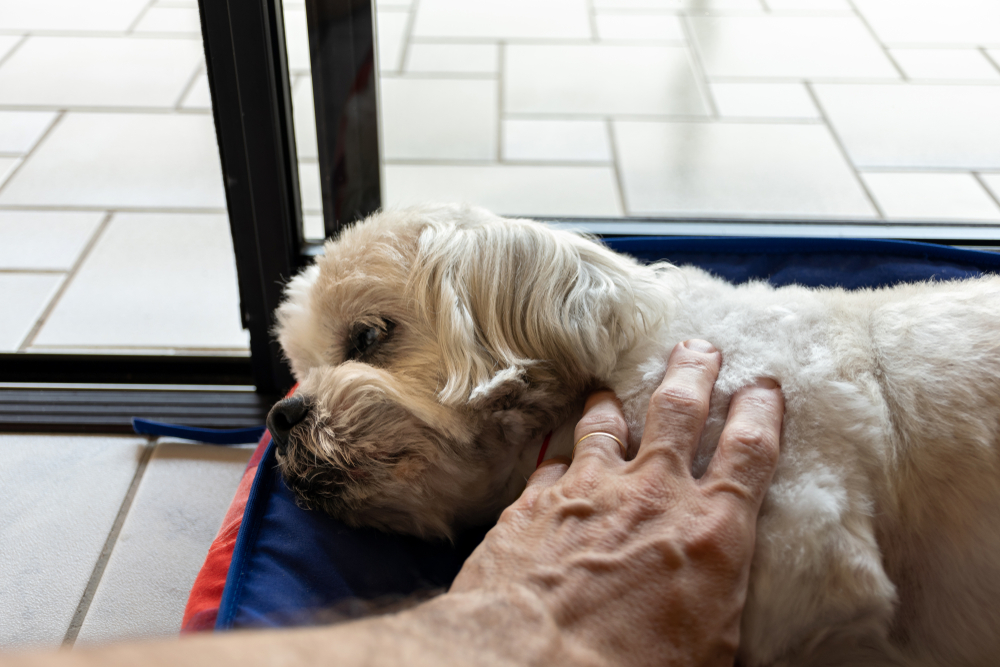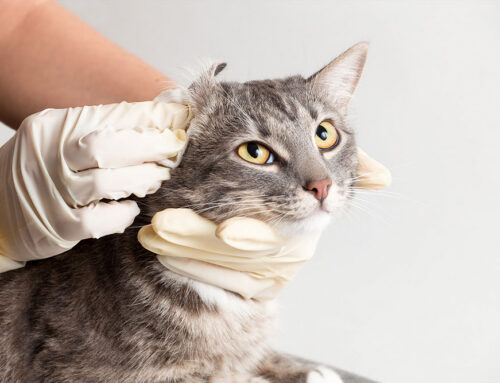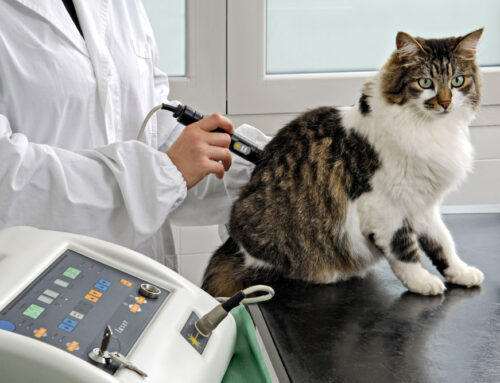When It’s Time to Say Goodbye: End-of-Life Care for Pets
When your pet reaches the final stage of life, every moment becomes more meaningful and every decision more personal. At Woodland Springs Veterinary Hospital, we believe that end-of-life care should be guided by compassion, honesty, and the unwavering belief that your pet deserves to be treated with dignity and love.
This stage is never easy, but knowing what to expect and how to support your pet can bring clarity and comfort to your entire family. Our end-of-life care services are designed to support pets and families during this important chapter.
What Is End-of-Life Veterinary Care?
End-of-life care is the support we offer to pets and families when a beloved companion is nearing the end of their life. This care may span days, weeks, or even months, and may include:
- Pain management
- Mobility support
- Nutritional guidance
- Emotional comfort
- Hospice or palliative care
- Humane euthanasia when the time is right
The goal is always the same: to minimize suffering and provide your pet with peace and comfort during this transition. We are proud to be an AAHA-accredited hospital, meeting the highest standards of veterinary excellence. Our dedicated team is committed to supporting families through every stage of life.
Signs It May Be Time to Begin End-of-Life Conversations
Recognizing the signs that your pet may be approaching the end of their life is never simple. Some pets decline slowly; others change quickly. A few indicators that it’s time to consult your veterinarian include:
- Difficulty eating or drinking
- Incontinence or an inability to get up
- Frequent vomiting or diarrhea
- Labored breathing or coughing
- Isolation, confusion, or changes in behavior
- Significant weight loss or muscle wasting
- More bad days than good
A helpful tool is the Quality of Life Scale for aging pets, which assesses mobility, appetite, hygiene, pain, and emotional well-being. Keeping a daily log can help you notice trends that may otherwise feel inconsistent or unclear. Families also benefit from understanding common signs in senior pets so they can recognize when small changes become more significant.
If you’ve started to wonder whether your pet is suffering, that’s a sign to begin the conversation. In urgent situations, emergency care is available at Woodland Spring Veterinary Hospital to provide immediate support when comfort cannot wait. When we are closed, please take your pet to the nearest 24/7 veterinary ER.
Palliative and Hospice Support: Making Pets Comfortable
Palliative and hospice care focus on improving your pet’s quality of life rather than curing illness. This stage of care is about ensuring that your companion feels loved, safe, and as comfortable as possible during their remaining time. With the right approach, many pets can continue to enjoy meaningful moments with their families, even in the face of advanced age or serious illness.
Palliative care may include:
- Pain relief and anti-inflammatory medications to ease arthritis, injuries, or other chronic conditions
- Anti-nausea treatments or appetite stimulants to encourage eating and maintain strength
- Comfortable bedding and environmental adjustments to help with mobility challenges or pressure sores
- Specialized diets or hand-feeding strategies to meet changing nutritional needs
- Regular grooming and hygiene care to prevent discomfort from matted fur, overgrown nails, or incontinence
- Scheduled check-ins with your veterinary team to monitor changes and update the care plan as needed
- Laser therapy to reduce pain, swelling, and inflammation in pets with arthritis, injuries, or chronic conditions
In some situations, pets receiving palliative support may live for weeks or even months with good comfort and stability. Hospice care often expands on this foundation by focusing on the whole family’s needs, not just the pet’s. Hospice may include home visits, medication adjustments, and emotional support as you prepare for difficult decisions.
Practical tools can also make day-to-day life easier. Simple assistive devices for pets such as ramps, slings, or supportive harnesses help pets remain mobile and engaged. Likewise, thoughtful arthritis-friendly home changes, such as adding non-slip rugs, placing food and water at an accessible height, or providing orthopedic bedding, can prevent falls and increase comfort.
Ultimately, palliative and hospice care are about honoring the bond you share with your pet while giving them the dignity of a gentle, supported transition. These services allow families to treasure their remaining time together while ensuring that pets experience love and relief, not suffering.
Euthanasia: When It’s the Kindest Choice
How do you know when it’s the right time to euthanize your pet? There’s never really a right time to say goodbye to a best friend and family member. As painful as it is, humane euthanasia is often the final gift of love we can give. It is a peaceful, painless procedure that allows your pet to pass away without fear, discomfort, or distress.
At Woodland Springs Veterinary Hospital, we ensure the process is calm and respectful. We’ll discuss:
- Where and how the procedure will occur: Our bereavement room provides a quiet, private area for families saying goodbye.
- Whether you want to be present
- Sedation and pain management steps
- Aftercare options, including cremation or burial
- How to prepare children or other pets
You never have to walk this road alone. Our team will support you before, during, and after the decision.
Helping Families and Children Cope with the Loss of a Pet
The loss of a pet touches every member of the household, and for many children, it may be their very first encounter with death. It is important to be truthful while still gentle. Experts recommend using clear, age-appropriate language, avoiding phrases such as “put to sleep,” which can lead to confusion or fear. Instead, explain that the pet was very old, or very sick, and could no longer get better.
Giving children the chance to draw pictures, write letters, or share stories helps them process the experience in meaningful ways, and letting them say goodbye in their own style provides comfort and closure. Many families also find peace in memorial rituals such as planting a tree, creating a scrapbook, or displaying a favorite photograph. Acts of remembrance help honor the life you shared and provide gentle steps forward in healing.
For both adults and children, grief is a deeply personal journey. No matter how many times you have faced the passing of a pet, the emotions are real and deserve care. Trusted resources like the Association for Pet Loss and Bereavement, Cornell University’s Pet Loss Resources, and Woodland Spring’s list of grieving and support programs can connect you with counseling, community, and compassionate guidance.

When You’re Ready, We’re Here
At Woodland Springs Veterinary Hospital, our commitment to compassionate care does not end when treatments are no longer curative. We believe in honoring the human-animal bond every step of the way with dignity, respect, and love.
If you are navigating the final chapter of your pet’s life, please know you are not alone. We are honored to support you through these deeply personal decisions with empathy, expertise, and heart.
Call Woodland Springs Veterinary Hospital at (817) 431-3735
Request an appointment online
Visit us at 11715 Alta Vista Road, Fort Worth, TX 76244
Let us help you and your pet find peace, comfort, and love together.







Leave A Comment